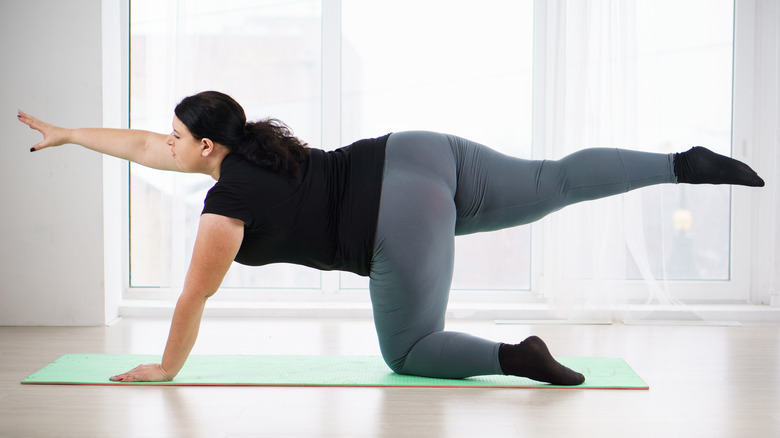The Unexpected Link Between Excessive Exercise And Fertility
Whether you're experiencing infertility or simply want to improve your fertility in general, you might think that increasing your physical activity is the way to go. While daily movement is usually a good idea, taking it to an extreme may actually harm your chances of having a baby.
To explore the link between excessive exercise and fertility, we first have to define what excessive exercise actually is (via Verywell Health). This depends on both intensity and duration. Examples of strenuous or vigorous exercise can include Crossfit or high-intensity interval training (HIIT), but even something like bicycling or weight training can be vigorous if you push yourself hard and fast. Moderate exercise, on the other hand, usually feels more sustainable. This is when you increase your heart rate to 50-60% above your resting heart rate, like by swimming laps for 20 minutes or walking two miles in 30 minutes (via Cleveland Clinic). While there are different recommendations on how much moderate exercise is best for your health, the general consensus is 150 minutes of moderate-intensity exercise per week.
Excessive exercise can decrease your fertility
Research has suggested that vigorous exercise shouldn't exceed more than four hours per week (per Fertility and Sterility). As it turns out, this guideline might be good for your fertility, too. In fact, studies show that high levels of exercise might actually negatively impact your ability to bear children, according to Verywell Health. Research has shown that seven or more hours per week of aerobic exercise can increase the risk of ovulation problems. Strenuous exercise for more than four hours per week can reduce IVF (in vitro fertilization) success rates, and vigorous exercise for women at their normal weight may decrease their fertility.
However, for those who are obese, research shows that losing even just 10% of your body weight can boost your fertility, even if you're still considered obese. This measurement of "obese," though, depends on your body mass index (BMI), which is a dated, biased, and flawed measurement tool.
If you're unsure about how your exercise regimen may affect your fertility journey, consult your doctor for individualized care.


